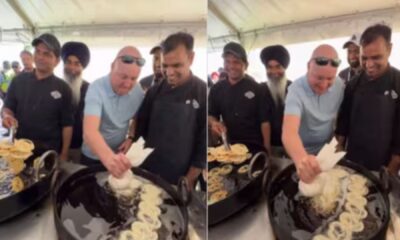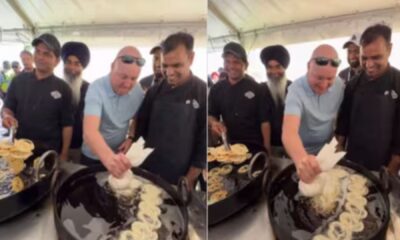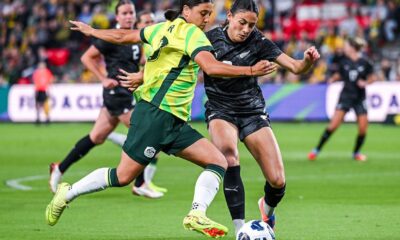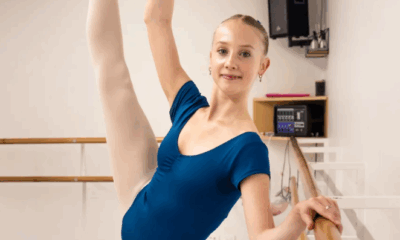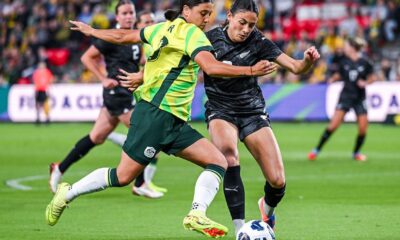Lifestyle
Māori-Indian Celebrations Shine at India’s Independence Day in NZ
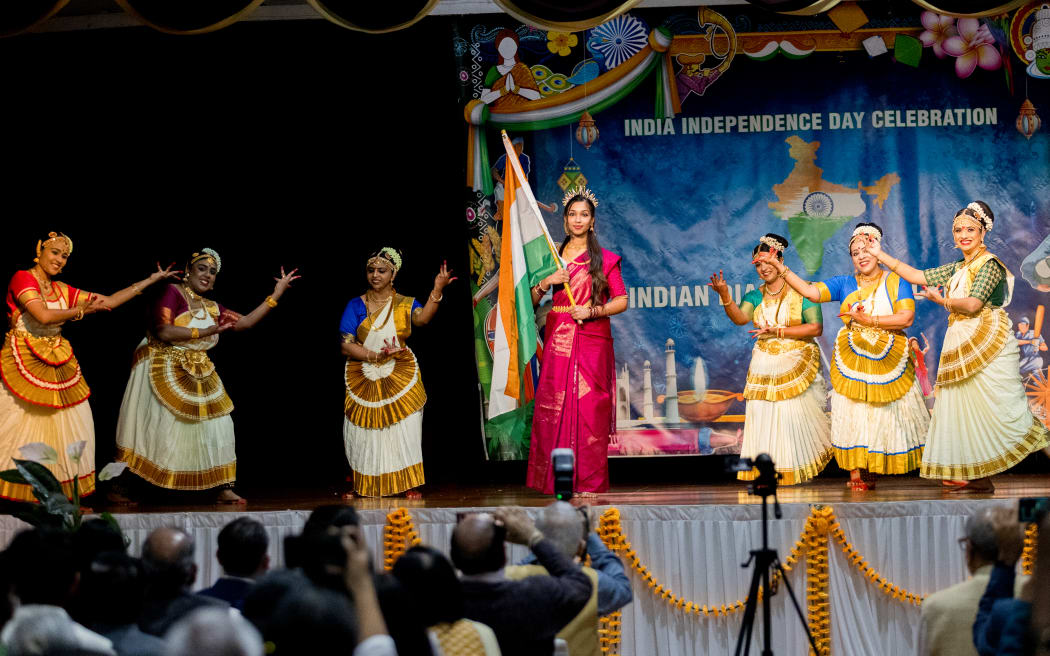
New Zealand’s Indian community celebrated India’s Independence Day over three vibrant days that showcased the rich cultural tapestry shared between Māori and Indian communities. From August 15 to 17, cities across the nation—including Auckland, Wellington, and Dunedin—hosted a series of events that highlighted India’s diverse heritage and its longstanding connections with New Zealand.
The festivities kicked off with flag-hoisting ceremonies and cultural nights that featured performances celebrating India’s millennia-old traditions. In Auckland, where the largest Indian diaspora resides, the celebrations were particularly lively. Notable events included a unique Masterchef competition pitting Māori chefs against their Indian counterparts, and a fashion show featuring the creative works of Māori and Indian designers. These collaborations underscored the spirit of unity that marked the celebrations.
On August 16, Prime Minister Christopher Luxon and opposition leader Chris Hipkins participated actively, joining in a popular Indian dance that delighted attendees at the Dew Drop Events Centre. The following day, representatives from over 15 Indian states performed regional folk and classical dances at Mount Eden, further enriching the cultural experience.
The Indian High Commission in Wellington and India’s Consulate General in Auckland hosted a reception on August 15, the 76th anniversary of India’s independence from British rule. Among the attendees was Nikhil Ravishankar, the incoming chief executive of Air New Zealand, who is set to take over the prestigious airline in October. Ethnic Communities Minister Mark Mitchell praised Ravishankar’s appointment, highlighting the significant contributions of the Indian community to New Zealand’s social and economic landscape.
Speakers at the events echoed a sentiment of friendship and collaboration. Luxon, Hipkins, Indian High Commissioner Neeta Bhushan, and other leaders, including ACT MP Parmjeet Parmar and Labour MP Priyanca Radhakrishnan, emphasized the importance of cultural partnerships. The Indian population in New Zealand has now surpassed the Chinese community to become the third largest, with the 2023 Census reporting 292,092 individuals identifying as having Indian heritage—an increase of 22 percent since 2018.
The historical context of this growth is significant. Just six Indians were recorded in New Zealand in 1881. Today, the Indian community has not only flourished but has also become increasingly prosperous, with a median income of $51,600, exceeding the national average of $41,500. Furthermore, a report by Sense Partners indicated that the community contributed approximately $10 billion to New Zealand’s economy in 2019, representing about 3.3 percent of the total GDP at that time.
As the celebrations unfolded, diverse cultural performances took center stage across the country. In Palmerston North, groups representing various Indian states organized an event titled “United in Diversity,” while Dunedin’s Indian Association hosted a “grand patriotic event” featuring traditional Carnatic music at the University of Otago. Hamilton welcomed Indian pop singer Shibani Kashyap, showcasing the collaborative efforts of local cultural organizations.
Auckland stood out as a hub for cross-cultural activities. The Whiria Collective, a Māori organization, collaborated with India’s CD Foundation to present a fusion fashion show and culinary competition. Chefs from both cultures showcased innovative dishes that incorporated Indian spices and New Zealand ingredients, a testament to the evolving culinary landscape. Judge Anand Erickson from Auckland University of Technology expressed enthusiasm for these culinary innovations, stating, “This—fusion food and molecular gastronomy—is quite contemporary and trending.”
The celebrations also featured performances by an award-winning dance group from Telangana, India, which showcased ancient dance forms that narrate stories related to the Hindu God Shiva. Ravi Kumar, a dancer from the group, emphasized the cultural significance of their performances.
The Indian diaspora in Auckland demonstrated a commitment to preserving their heritage. Sonali Banerjee from the Probasee Bengali Association highlighted the importance of such celebrations for passing on cultural values to younger generations. Another performer, Mary Shaji, who presented the classical dance Mohiniyattam from Kerala, echoed this sentiment, noting that marking festivals like Independence Day helps maintain connections to their roots.
The successful collaboration between Māori and Indian communities during these celebrations reflects a growing recognition of cultural diversity and the shared values that unite different ethnic groups in New Zealand. As the nation moves forward, events like these will continue to play a vital role in fostering understanding and connection among its diverse population.
-

 World1 week ago
World1 week agoPrivate Funeral Held for Dean Field and His Three Children
-

 Top Stories2 weeks ago
Top Stories2 weeks agoFuneral Planned for Field Siblings After Tragic House Fire
-

 Sports3 months ago
Sports3 months agoNetball New Zealand Stands Down Dame Noeline Taurua for Series
-

 Entertainment3 months ago
Entertainment3 months agoTributes Pour In for Lachlan Rofe, Reality Star, Dead at 47
-

 Entertainment2 months ago
Entertainment2 months agoNew ‘Maverick’ Chaser Joins Beat the Chasers Season Finale
-

 Sports3 months ago
Sports3 months agoSilver Ferns Legend Laura Langman Criticizes Team’s Attitude
-

 Sports1 month ago
Sports1 month agoEli Katoa Rushed to Hospital After Sideline Incident During Match
-

 World2 weeks ago
World2 weeks agoInvestigation Underway in Tragic Sanson House Fire Involving Family
-

 Politics2 months ago
Politics2 months agoNetball NZ Calls for Respect Amid Dame Taurua’s Standoff
-

 Top Stories2 weeks ago
Top Stories2 weeks agoShock and Grief Follow Tragic Family Deaths in New Zealand
-

 Entertainment3 months ago
Entertainment3 months agoKhloe Kardashian Embraces Innovative Stem Cell Therapy in Mexico
-

 World4 months ago
World4 months agoPolice Arrest Multiple Individuals During Funeral for Zain Taikato-Fox

